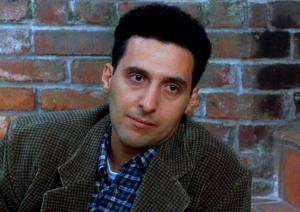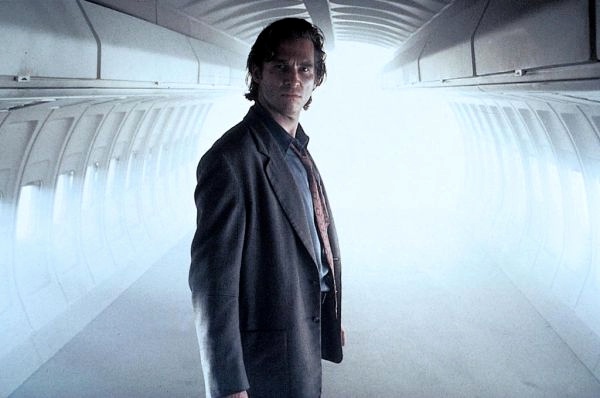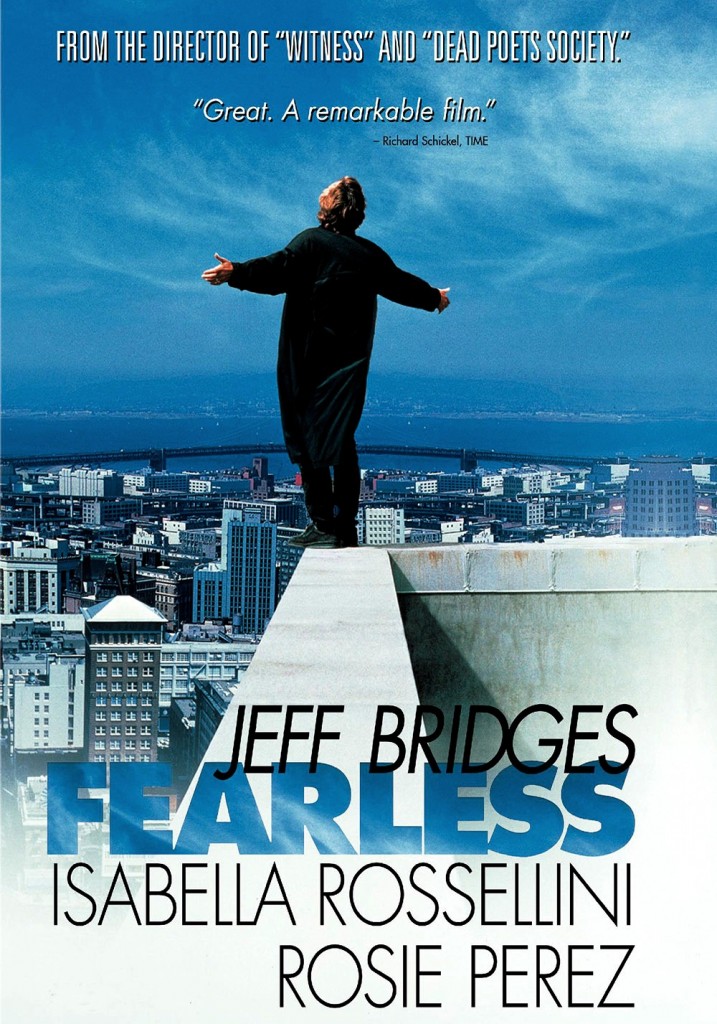
“You want to kill me but you can’t!” – Max Klein to God
Regards the euphoria felt upon surviving certain death. Fearless (1993) features Jeff Bridges as San Francisco architect Max Klein, who survives a plane crash and even comes away as a hero to other passengers on board. Amid the wreckage aftermath, he quietly disappears. He doesn’t call home to his wife (Isabella Rossellini). Instead, the story considers how a man escapes death and now selfishly lives to his own whims, living life as if investigating a new philosophy. Chucking responsibilities off to the side; accepting a new state of grace that eliminates money, rules, and his social roles. This was startling drama when I first saw it in the 1990’s. Today, I find it just as compelling as before but standoffish and even self-absorbed. Still, it’s an interesting picture albeit often downbeat. The director is Peter Weir (“The Year of Living Dangerously,” “Witness”).
Bridges returns home to his wife and child, has a psychiatrist (John Turturro) and a lawyer (Tom Hulce) hounding him for good and bad reasons, and is completely smug in all of his interactions. Except one: Crash survivor Carla (Rosie Perez, Oscar-nominated) falls into a deep depression after losing her baby in the fiery plane, and Max falls in love with “saving” her. A deep friendship is forged, with an intimate bond that is stronger than the one he has with his wife. Nothing inadequate with her: She is patient, an intellectual, a ballet teacher for occupation, a thoughtful parent. Being shut out by Max makes her finally lose patience.
The lawyer says “I know, I’m terrible!” with gleeful capriciousness, asking witnesses to embellish their remembrance of the tragedy. He wants Max to testify on behalf of widows of the dead that he saw hideous death before his eyes and perhaps use Max’s suicidal behavior  to get more money for his family. The lawyer takes issues with the crash’s dead babies as an equation for settlement money from the airline. Max and Carla know that money can’t bring back a life. Dr. Bill Perlman, Max’s psychiatrist, has a sensitive capacity to understand this too, but can’t belong to the club. It’s a terrific performance by Turturro really (pic, left), as a man with heightened sagacity and yet a bashfulness that inhibits himself from truly living life to its limits.
to get more money for his family. The lawyer takes issues with the crash’s dead babies as an equation for settlement money from the airline. Max and Carla know that money can’t bring back a life. Dr. Bill Perlman, Max’s psychiatrist, has a sensitive capacity to understand this too, but can’t belong to the club. It’s a terrific performance by Turturro really (pic, left), as a man with heightened sagacity and yet a bashfulness that inhibits himself from truly living life to its limits.
Max’s suicidal behavior however is intentional, like he is challenging God. He acts in a way of someone who has come to believe they are invincible. If a plane crash can’t take his life, then why not live recklessly? We see the fragments of the plane crash through interval flashbacks, put together in entirety by the film’s close, and come to figure out the post-traumatic stress syndrome that accounts for Max’s behavior. It’s about time for God to shoot Max down to Earth to live like the rest of us again.
As for the plane crash, it is awesome in its horror and is for a few moments surreal (Max has reinterpreted his own memory of what happened). And yet, the movies have gotten better, more technically vivid – “Flight” in theaters now has a more stupendous one.
124 Minutes. Rated R.
Film Cousins: “Hero” (1992); “Alive” (1993); “White Squall” (1996); “Flight” (2012).






